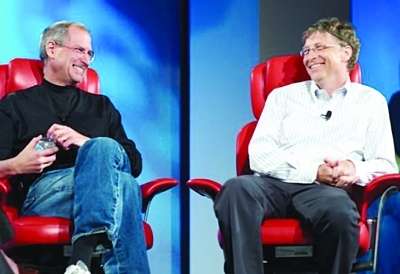At a forum in Cambridge, Massachusetts, in 1989, Jobs and Gates appeared sequentially, laying out their competing worldviews.

When Gates came up, he reiterated his belief that Jobs's end-to-end control of the software and the hardware was destined for failure,











